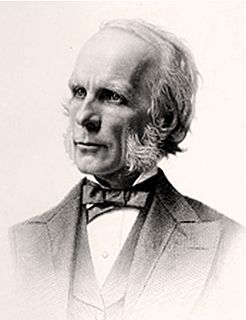A Quote by Charles Spurgeon
Grace is the mother and nurse of holiness, and not the apologist of sin.
Related Quotes
Wrath, unlike love, is not one of the intrinsic perfections of God. Rather, it is a function of God's holiness against sin. Where there is no sin, there is no wrath-but there will always be love in God. Where God in His holiness confronts His image-bearers in their rebellion, there must be wrath, or God is not the jealous God He claims to be, and His holiness is impugned. The price of diluting God's wrath is diminishing God's holiness.
Christ will be master of the heart, and sin must be mortified. If your life is unholy, then your heart is unchanged, and you are an unsaved person. The Savior will sanctify His people, renew them, give them a hatred of sin, and a love of holiness. The grace that does not make a man better than others is a worthless counterfeit. Christ saves His people, not IN their sins, but FROM their sins. Without holiness, no man shall see the Lord.
The state of grace is nothing other than purity, and it gives heaven to those who clothe themselves in it. Holiness, therefore, is simply the state of grace purified, illuminated, beautified by the most perfect purity, exempt not only from mortal sin but also from the smallest faults; purity will make saints of you! Everything lies in this!
What is sin? It is the glory of God not honored. The holiness of God not reverenced. The greatness of God not admired. The power of God not praised. The truth of God not sought. The wisdom of God not esteemed. The beauty of God not treasured. The goodness of God not savored. The faithfulness of God not trusted. The commandments of God not obeyed. The justice of God not respected. The wrath of God not feared. The grace of God not cherished. The presence of God not prized. The person of God not loved. That is sin.
Great winds and storms help fruit-bearing trees. So also do corruptions and temptations help the fruitfulness of grace and holiness. The storm loosens the earth round its roots so the tree is able to get its roots deeper into the earth, where it receives fresh supplies of nourishment. But only much later will it be seen to bring forth better fruit. So corruptions and temptations develop the roots of humility, self-abasement and mourning in a deeper search for that grace by which holiness grows strong. But only later will there be visible fruits of increased holiness.


































